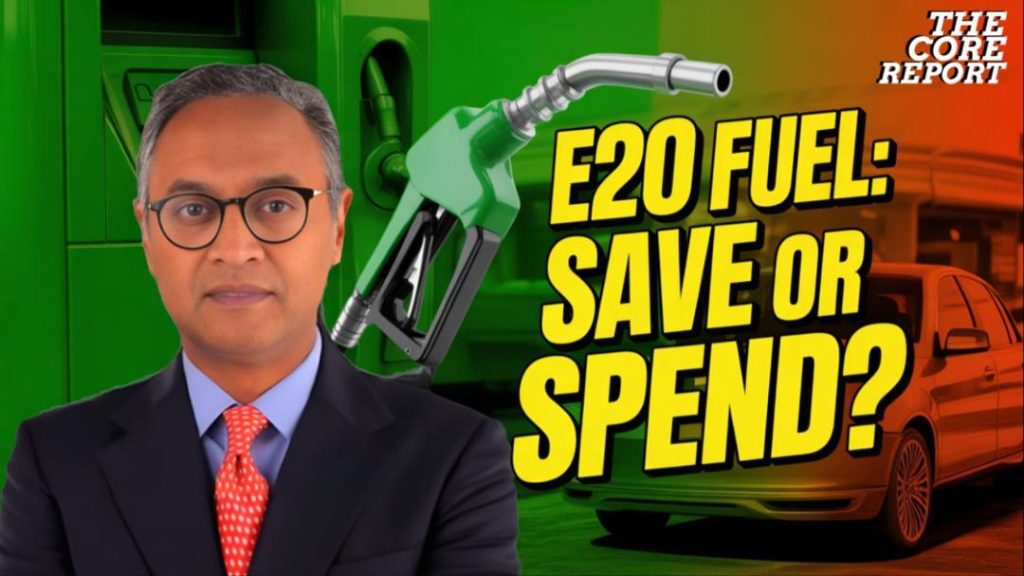
E20 Fuel in India: Benefits, Risks & What Vehicle Owners Must Know
India has taken a significant step towards reducing carbon emissions, boosting energy security, and supporting farmers by introducing E20 petrol blend, which is a mixture of 20% ethanol and 80% gasoline. The government has been promoting the use of E20 fuel to reduce the country’s reliance on imported crude oil and to create new opportunities for farmers. But what are the benefits and risks associated with this new fuel blend? In this blog post, we will delve into the details of E20 fuel, its benefits, risks, and what vehicle owners must know to ensure a smooth transition.
Benefits of E20 Fuel
The introduction of E20 fuel is expected to bring numerous benefits to the country. Some of the key advantages include:
- Reduced Carbon Emissions: E20 fuel is estimated to reduce carbon emissions by 20-30% compared to regular gasoline. This is because ethanol is a biofuel that is produced from renewable sources such as sugarcane, corn, and wheat.
- Boost to Energy Security: The use of E20 fuel can reduce India’s dependence on imported crude oil, thereby improving energy security and reducing the country’s trade deficit.
- Support to Farmers: The production of ethanol requires sugarcane, which is a major crop in India. The increased demand for ethanol is expected to boost the sugar industry and provide new opportunities for farmers.
- Improved Fuel Efficiency: Studies have shown that E20 fuel can improve fuel efficiency by 10-15% compared to regular gasoline.
Risks of E20 Fuel
While E20 fuel has several benefits, there are also some risks associated with its use. Some of the key concerns include:
- Compatibility Issues: Older vehicles that are not designed to run on E20 fuel may experience compatibility issues, including engine wear, fuel system corrosion, and mileage loss.
- Higher Costs: The production and distribution of E20 fuel are expected to be more expensive than regular gasoline, which could lead to higher costs for consumers.
- Quality Control: The quality of ethanol used in E20 fuel is a major concern. If the ethanol is not of high quality, it could contaminate the fuel and cause damage to vehicles.
- Infrastructure: The widespread adoption of E20 fuel will require significant investments in infrastructure, including the development of new fueling stations and the modification of existing ones.
What Vehicle Owners Must Know
For vehicle owners, it is essential to know the following:
- Check Your Vehicle’s Compatibility: If you own an older vehicle, it is essential to check its compatibility with E20 fuel. You can check your vehicle’s manual or consult with a mechanic to determine if it is suitable for E20 fuel.
- Use the Right Fuel: Make sure to use the right fuel for your vehicle, whether it is E20 or regular gasoline. Using the wrong fuel can cause damage to your vehicle’s engine and fuel system.
- Monitor Your Vehicle’s Performance: Keep an eye on your vehicle’s performance after switching to E20 fuel. If you notice any unusual issues, such as decreased fuel efficiency or engine problems, consult with a mechanic.
- Plan Ahead: As E20 fuel becomes more widely available, it is essential to plan ahead and ensure that you have access to the right fuel for your vehicle.
Timeline for E20 Fuel Adoption
The Indian government has set a timeline for the adoption of E20 fuel, with the aim of making all new vehicles E20-compliant by 2025. This will ease adaptation concerns and ensure a smooth transition to the new fuel blend.
Conclusion
In conclusion, E20 fuel is a significant step forward in India’s efforts to reduce carbon emissions, boost energy security, and support farmers. While there are some risks associated with its use, including compatibility issues and higher costs, the benefits of E20 fuel far outweigh the risks. By taking the necessary precautions and planning ahead, vehicle owners can ensure a smooth transition to the new fuel blend. As E20 fuel becomes more widely available, it is essential to promote awareness and education about its benefits and risks to ensure a successful transition.
News Source
For more information on E20 fuel, watch this video by [News Source]: https://youtu.be/zM_EyWPyliQ






